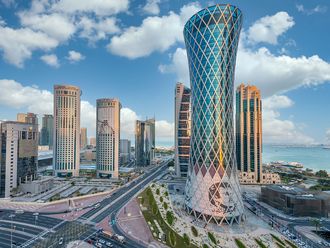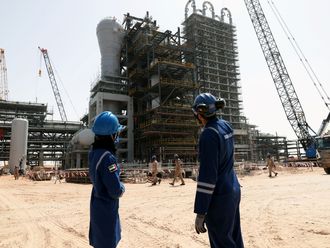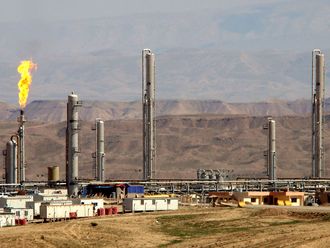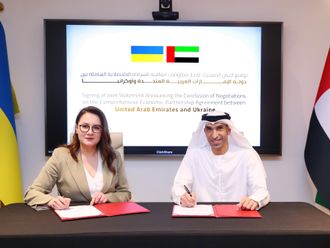A UAE move will boost India’s ambitious project of establishing 5.03 million metric tonnes (MMT) strategic crude oil storages, a top Indian diplomat told Gulf News on Wednesday.
The UAE’s commitment has come at the right time as the first part of the Rs24 billion (Dh 1.43 billion) project has been completed recently, T. P Seetharam, the Indian Ambassador to the UAE, said.
As Gulf News reported on Tuesday, India and the UAE agreed to cooperate for setting up a strategic petroleum reserve in Asia’s third largest economy, in a bid to further strengthen economic relations. This was discussed at the second meeting of India-UAE High Level Joint Task Force (HJTF) on Investment in Mumbai in India on Monday.
“Discussions were held on supporting the establishment of a strategic petroleum reserve in India in a manner serving the common strategic interests of both countries and based on the principles of long term strategic partnership and cooperation,” said a statement issued after the meeting.
About the meeting’s decision to form a joint working group for this purpose, the envoy said both government and private sector representatives are expected to be included in the group.
Already six working groups on various sectors are functioning, which were formed in the first HJTF meeting held in Abu Dhabi in February 2003.
Seetharam said India has already ratified Bilateral Investment Promotion and Protection Agreement (BIPPA) that was signed by both nations in December 2013, which serves as a platform for promotion and reciprocal legal protection of investments in both countries. The UAE is expected to ratify it soon.
He said the decision on petroleum reserve in India will benefit both nations’ energy security.
India decided to set up the strategic crude oil storages at three locations in South India — Visakhapatnam, Mangalore and Padur (near Udupi) — to ensure energy security.
These strategic storages would be in addition to India’s existing storages of crude oil and petroleum products with the oil companies and would serve as a cushion in response to external supply disruptions, according to Indian Strategic Petroleum Reserves Limited (ISPRL), a Special Purpose Vehicle, owned by India’s Oil Industry Development Board (OIDB).
ISRL manages the construction of the strategic storage facilities, which are in underground rock caverns on the east and west coasts so that they are readily accessible to the refining sector. Underground rock caverns are considered the safest means of storing hydrocarbons
The first part of Vishakhapatanam project has been completed recently and the rest will be commissioned soon.
Mangalore project is expected to be ready by the end of this year. Padur project will also be completed soon.












